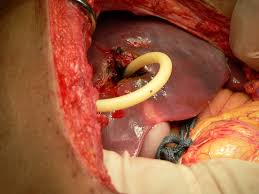Rehab Articles

A new research study on chronic stress in teens had results that some may find surprising. Many teens are already burned out from chronic stress before they even leave high school, and this stress just gets even worse as they move on to college. According to New York University College of Nursing senior research scientist Noelle Leonard, Ph.D. “School, homework, extracurricular activities, sleep, repeat —that’s what it can be for some of these students. We are concerned that students in these selective, high pressure high schools can get burned out even before they reach college. The Charles Engelhard Foundation is interested in the issue of college engagement, and funded us to explore whether the roots of disengagement reach back as far as high school. We found that indeed they do.”
Chronic stress in teens can lead to disengagement or even mental health issues for emerging adults according to the research study. Principal Investigator for the study, Marya Gwadz, Ph.D., said “While there is no doubt students in selective public high schools also experience high rates of chronic stress, we decided to study the private school setting, which has been under-studied compared to public institutions.” The study involved four phases, and the results were published in Frontiers in Psychology. There are some who believe tat all students today have much more stress than they did in the past, and far fewer hours each week just to be kids or teenagers. Do you think that teens today have too much chronic stress? Why or why not?
Rehab Articles

research study, binge drinking
A new research study performed at the University of Missouri shows that binge drinking can alter liver proteins, and this can cause cancer and cirrhosis of the liver. According to the lead research study author, Shivendra Shukla, Ph.D., “We know that chronic alcohol use is damaging to the liver, but binge drinking amplifies that damage. Our latest research shows that epigenetic modifications in histone structures occur within the liver as a result of heavy binge drinking. Epigenetic alterations are changes in genes that are not caused by changes in the DNA sequence or genetic code.” Binge drinking causes liver tissues to undergo genetic changes, and one of the most common factors with chronic liver failure is excessive alcohol consumption. The damage to the liver that is caused by excessive drinking can not be repaired or reversed.
The research study on binge drinking and liver damage can be found in the journal Hepatology International. Dr. Shukla also stated “Every response in the body is due to alterations in proteins. Binge drinking is an environmental trigger that negatively affects histones by altering the correct binding of DNA. The result is unnecessary replication in the copied structure. This initially causes inflammation and damage to the cells as they form, but it is also eventually the cause of more serious diseases such as cirrhosis and cancer.” The study author also explained “Binge drinking can create an inflammatory response in the liver that is like a cluster bomb, sending out various damaging signals to other organ systems in the body. If those organs are working at a lower level of function, then a whole host of physiological processes are affected as a consequence of binge drinking.”
Rehab Articles

Do the study results from a new research study show that addiction is for life? The answer is not quite that clear cut, and the study uses neural activity before and after addiction treatment to determine why some individuals never stop their substance abuse even when the consequences are deadly. Anyone involved in substance abuse programs and addiction treatment facilities understand just how hard it can be to break certain addictions. The new study shows that recovery can be a lifelong process. Biological Psychiatry is the journal where the study results are published. The editor of this journal is Dr. John Krystal, and when asked about the study results he is credited as saying “The knowledge that some neural changes associated with addiction persist despite long periods of abstinence is important because it supports clinical wisdom that recovery from addiction is a lifelong process.”
Addiction treatment is very important, and there is no quick fix for substance abuse. During the study there were 3 groups used. One of the groups had no substance abuse issues at all, another group involved individuals with current substance abuse, and the third group involved patients who were in recovery after experiencing addiction. Even after the substance abuse was abstained from for a long period of time the reward center of the brain did not revert back to the previous function. Once the addiction changed the neural pathways and reward center of the brain these areas did not go back to normal once the substance abuse was stopped.




